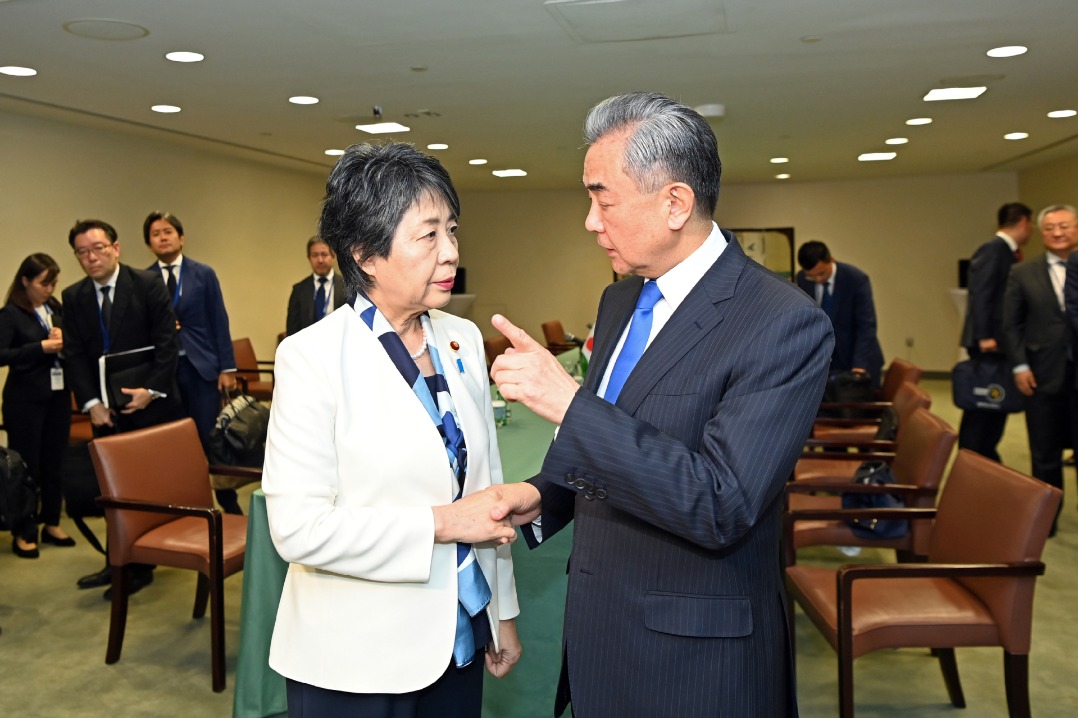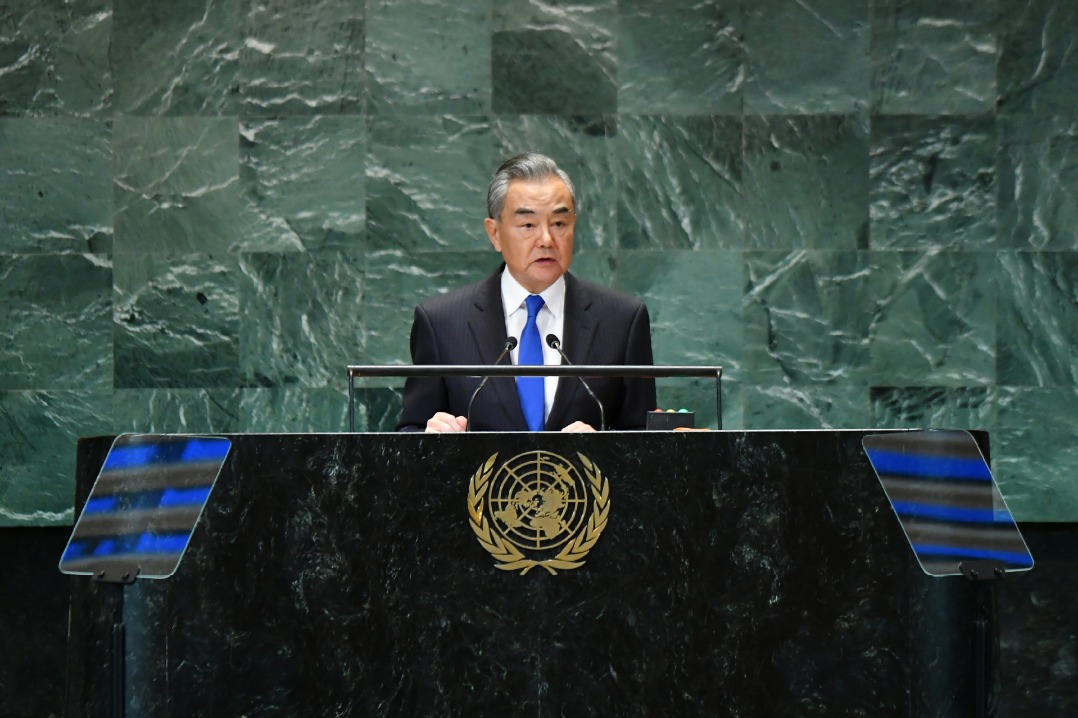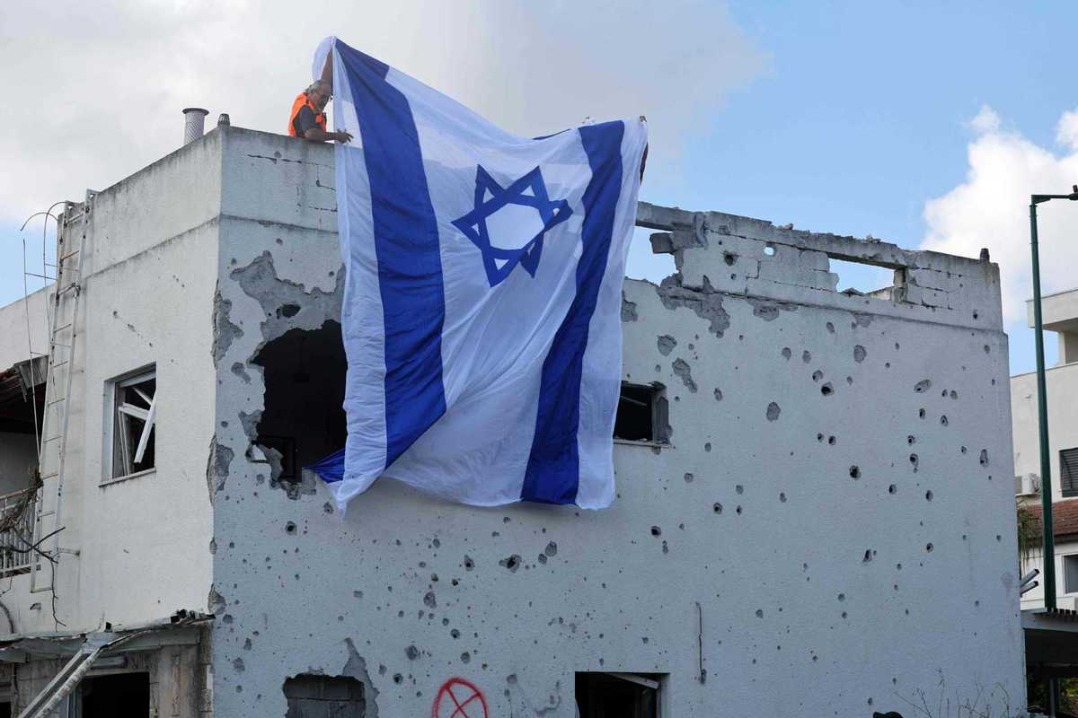Calls mount for calm as conflict rages
Intl community urges de-escalation in Middle East amid fears of all-out war


The international community is calling for an end to indiscriminate attacks in Lebanon that have killed more than 550 people, sent tens of thousands fleeing and raised fears of an escalation into a full-scale war in the region.
Israel's military said on Tuesday it hit dozens of Hezbollah targets overnight, a day after 558 people, including 50 children, were killed and 1,835 wounded in the deadliest bombardment since a devastating war in 2006.
Lebanon's Health Ministry said six people were killed and 15 injured on Tuesday in an Israeli strike on southern Beirut.
Lebanon's caretaker Prime Minister Najib Mikati condemned Israel's "destructive plan" on his country and said the continued Israeli aggression is a war of extermination in every sense, Middle Eastern media reported.
United Nations Secretary-General Antonio Guterres said he was "gravely alarmed by the escalating situation along the Blue Line", referring to the demarcation line dividing Lebanon from Israel and the occupied Golan Heights, as well as "the large number of civilian casualties".
Guterres also "expresses great concern for the safety of civilians, both in southern Lebanon and in northern Israel as well as the UN staff there in those areas", his spokesman Stephane Dujarric said.
Chinese Foreign Minister Wang Yi, meeting his Lebanese counterpart Abdallah Bou Habib in New York, said China firmly supports Lebanon in safeguarding its sovereignty, security and national dignity.
Regarding Israel's large-scale airstrike, Wang said China "strongly condemns this violation of the basic norms of international relations".
"No matter how the situation changes, we will always stand on the side of justice and our Arab brothers, including Lebanon," he said, adding China "firmly opposes indiscriminate attacks on civilians".
Chinese Foreign Ministry spokesman Lin Jian said on Tuesday that China opposes any infringement on Lebanon's sovereignty and security.
"We oppose and condemn any move that harms innocent civilians," he said.
"We call on relevant parties to take immediate measures to cool down the situation, prevent further escalation of tensions in the region, uphold peace and stability in the Middle East, and protect the safety of the people there."
In a video message appealing to the people of Lebanon, Israeli Prime Minister Benjamin Netanyahu clarified that Israel's war "was not with you", but with Hezbollah.
Jan Egeland, secretary-general of the Norwegian Refugee Council, described Israel's airstrikes across Lebanese villages and cities as "the most violent in 11 months" as residential areas and densely populated neighborhoods were bombed.
He urged for immediate de-escalation by all parties to the conflict and for an end to the indiscriminate attacks that destroy civilian homes and infrastructure.
The appeals came after last week's explosions of Hezbollah-owned pagers and walkie-talkies. The total death toll in those attacks has risen to 39, and thousands were injured, Lebanese authorities said.
Ahmad Ghouri, a senior lecturer of the School of Law, Politics and Sociology at the University of Sussex in England, and managing editor of Revival Press, told China Daily that the pager attacks in Lebanon "are viewed as serious violations" of international humanitarian law.
"The simultaneous detonation of thousands of devices without distinguishing between military targets and civilians violates the principles of distinction and proportionality under international humanitarian law," Ghouri said.
"The nature of these attacks ... is considered indiscriminate. Indiscriminate attacks are prohibited under international humanitarian law because they fail to target specific military objectives and pose a significant risk to civilians. Such attacks could be classified as war crimes."
In an interview with CBS News, former CIA director Leon Panetta labeled the deadly pager explosions as a form of "terrorism" that had gone into the supply chain.
Violation of sovereignty
Arie Afriansyah, an associate professor of the Faculty of Law at Universitas Indonesia, said that in the case of interstate armed conflict, the violation of sovereignty "is always the case of any attack".
"It is irrelevant whether you are using any technology or not. As long as the attack is directed toward your enemy, it is part of the relations in wartime," Afriansyah told China Daily.
Israeli President Isaac Herzog, in an interview with Sky News, denied his country was behind the blasts, saying it does not want to go to war with Lebanon. His denial came amid numerous media reports insinuating that Israel was behind the device attacks.
Moreover, as world leaders are in New York for the 79th UN General Assembly, more than a dozen international humanitarian groups published a joint statement on the UN Palestinian refugee agency UNRWA appealing to end the "appalling human suffering and humanitarian catastrophe in Gaza".
Some of the signatories include UNICEF, Save the Children and the World Health Organization.
Agencies and Xinhua contributed to this story.

































